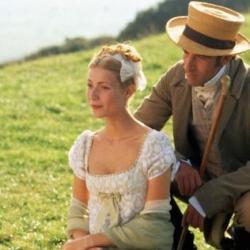In her TLS review of new books about Jane Austen, Devoney Looser comments on the irony that we think of Austen as a truthful, i.e., “factual,” novelist, a reporter of life as it was.
In fact, “Austen’s writings rarely fetishize facts. Her early foray into history writing famously describes itself as the work of a partial, prejudiced and ignorant historian. Austen humorously boasts to her readers that her history will contain very few dates. That manuscript, ‘The History of England,’ will be part of a featured display at the British Library this year, in honour of the bicentenary of Austen’s death.” Austen’s work is marked by an “unapologetic acknowledgement that her own stories are fabricated.” She calls them “novels,” and Looser shows that she had other, less explicit, terms to choose from.
The best part of the review is Looser’s dissection of Helena Kelly’s Jane Austen, the Secret Radical, which purports to present a revolutionary thesis: Austen was not a conservative! Kelley imagines Austen’s novels as “a sort of propaganda machine for the imperilled early nineteenth-century Left.”
It’s the sort of thing that merits a shrug. Radical Austen has been around a long time. Looser writes, “The early twentieth-century women’s suffrage movement embraced Austen, from its nonviolent to its radical branches. Many of the first playwrights, directors and actors of early Austen stage adaptations, in the 1890s and early 1900s, were or would become suffragists. Jane Austen’s name was featured on a banner marched through the streets of London in a 1908 demonstration. (That banner survives in the Women’s Library at the London School of Economics and Political Science.) In 1909, suffragists put Austen on stage as a character in the propaganda play A Pageant of Great Women.”
In short: “The radical Austen was your great grandmother’s Jane Austen.”













